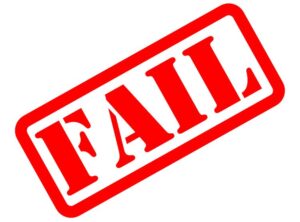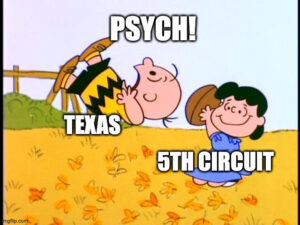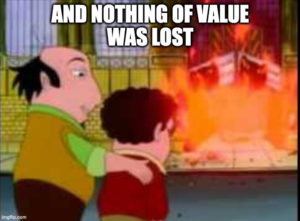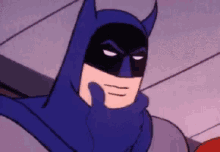Margaret Thatcher said “The problem with socialism is that you eventually run out of other people’s money,” but Cuba appears to have gone them one better: Bad policies means that they’re now running out of their own money.
‘There is no money in the banks’: Cubans stand in line since dawn to cash their paychecks.
“There is no money in the banks to pay people, everyone is upset and they haven’t even given us an explanation,” said Leydis Tabares, a Cuban who resides in Camagüey, to Martí Noticias this Friday.
The problem is nationwide, said Cubans consulted from different provinces by our editorial team. The lack of cash in ATMs has caused state workers to be unable to withdraw the salary deposited onto their magnetic cards.
“In Sancti Spíritus, queues start forming since dawn because by nine or ten in the morning there is no cash left. Some employees have had to wait up to 45 days to be able to withdraw,” reported independent journalist Adriano Castañeda.
According to the journalist, the process of banking and the limitation of cash withdrawals is the cause of this crisis. “That system is a disaster,” he opined.
“A general reform is needed in Cuba, of all kinds, social, political, and economic,” commented independent journalist Guillermo del Sol. According to him, many owners of private businesses in the country have stopped depositing cash due to the same restrictions imposed by the regime.
“The money that Micro, Small, and Medium-sized Enterprises (MSMEs) deposited in the bank they couldn’t retrieve, so they stopped depositing money in banks. And since they are the ones carrying the weight of what little works within Cuba, the banks ran out of money. That’s what’s happening right now,” he explained.
So even in communist Cuba, small and medium size business are what keeps the economy running, and the commies are destroying them by withholding their access to their own money. That’s some mighty fine management, Lou.
In Guantánamo, the shortage of money for worker payment affects all sectors and is creating another type of business in the streets.
“Some charge for making the long queues in the early mornings for employees. There are also people who have cash and charge a 10% fee to deliver the amount of money they have on the card,” commented independent journalist Anderlay Guerra Blanco.
“When there’s an ATM with money, the queues are endless,” said opposition member José Rolando Cásares, who resides in Pinar del Río.
Independent journalist Vladimir Turró explained that in the capital, there are even people who line up pointlessly because at dawn, the bank doesn’t supply cash to the ATM.
“We’re talking about people who gather at banks, some even go to sleep at the ATMs, trying to get some cash, and so they spend days trying to withdraw money,” he said.
The source of the problem (besides, you know, the communism) is Cuba’s push for a cashless economy.
When Cuba in early August announced it was taking a major step towards electronic banking and a “cashless” society, the offices of fledgling small businesses across the communist-run country were left scrambling to figure out how to respond.
Most alarming to many budding entrepreneurs was a new 5,000 peso ($20) daily cap on cash withdrawals for businesses, one of several measures the government said were aimed at forcing Cubans to do their transactions electronically, via transfer, online payment and bank cards.
So commies limit bank access to a business’s own cash, and they’re shocked that businesses stop depositing it in banks.
Lack of folding money isn’t the only economic malady befalling the Cuban people. Inflation is actually down, from an eye-watering 46% in the middle of last year to a still terrible 30%.
Cubans are preparing for a new wave of inflation after the government last week rolled out details of an austerity plan that economists say will touch nearly every facet of the communist-run island’s already flailing economy.
I guess the austerity plan means the usually tactic of just printing more money is off the table.
The measures – which include price and tax increases and cuts in subsidies – will slow a soaring budget deficit forecast to exceed 18% of gross domestic product and set the stage for growth, according to Prime Minister Manuel Marrero.
Authorities have already announced gas at the pump will jump nearly five-fold on Feb. 1. But some economists say less visible government price increases such as on wholesale fuel and moving freight, as well as sales and import taxes, are sure to ignite substantial hikes on most products and services at the retail level.
“In economics, such prices are not increased in one area without affecting others,” Cuban economist Omar Everleny said in an interview in Havana. “And in general they are passed on to consumers. I think they will increase 400% to 500%.”
Reuters spoke with several Cubans in Havana who said prices were already rising following the announcements and in anticipation of the price hikes – and were set to soar further in the coming weeks.
Snip.
Inflation was 30% last year, cooling slightly from 38% in 2022, according to the government. Many economists say those rates fall short of reality as the government does not adequately monitor a booming informal market pegged to an informal exchange rate much higher than the official one.
In Holidays in Hell, P. J. O’Rourke talks about exchanging $480 for a gymbag full of cordobas in Sandinista Nicaragua. “You probably have to take economics over and over again two or three times at Moscow U before you can make cash worth this little.”
Government officials have announced wholesale fuel prices will double next month, freight transportation will jump between 40% and 60% in March and for the private sector import duties will increase five-fold. Private companies will also be charged a new 10% sales tax on wholesale transactions.
So prices are soaring, but people can’t get their own money out of the bank to make ends meet. So Cuba’s communist government has accomplished the rare feat of a liquidity crunch and soaring inflation at the same time.
A very special kind of fail indeed.

(Hat tip: The Other McCain.)




